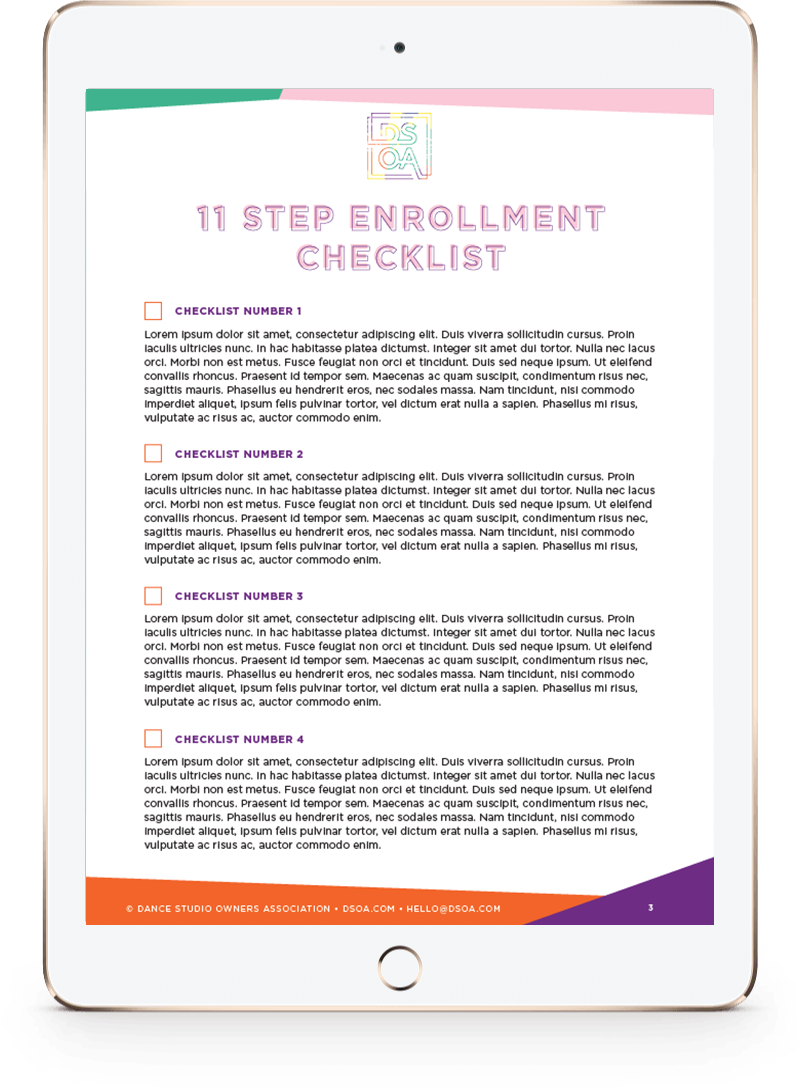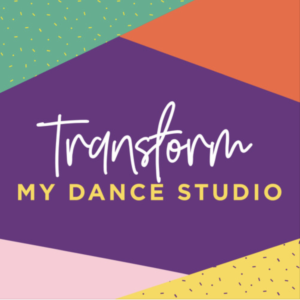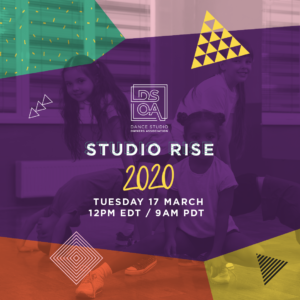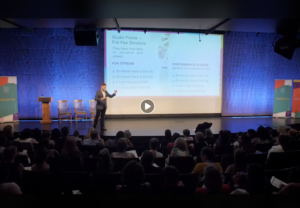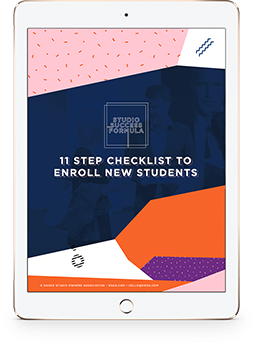Opening my own dance studio seemed like such a fun adventure at the time.
After all, I lived for dance.
I loved taking class of my own. I loved to teach and always had great feedback and retention in my classes. I was a talented choreographer, and I had a great relationship with my existing dance families.
And really . . . how hard could it be?
Well, about 3 weeks into my first experience as a business owner, the rose-tinted glasses had fallen apart and I was starting to realize that I was in the middle of a crash-course in learning what running a business is really like. And it was nowhere near as glam as I had hoped.
Now – almost 15 years later – I’m approached by new studio owners every day to ask me the million dollar question: “What do you wish you had known when you first started your dance studio”?
And the more I think about it, the more I see that while I could fill my next book with all of the mistakes and learning curves that have come my way since then (and since starting and selling 2 more businesses) I realize that every BIG thing that I overlooked in the early days falls into 5 very simple categories:
Finance
It’s no secret that I had little to no idea about financial planning or management back then. In fact (if we’d had the internet) I would have had to Google “investment” to see what people were talking about. But having a solid understanding of finance is absolutely crucial if you are going to survive and thrive in business.
You need to know how much money you have.
How much you can afford to spend.
How much you can afford to borrow.
How much you can afford to lose.
If owning your own studio is your dream but you can’t afford it, this needs to be you first step. Get a savings plan in place and work to make the money needed to invest in your dream. Before you even consider opening or expanding your business you need to speak with a financial advisor or accountant to get “Dr Phil Real” with you around the numbers.
Planning
I was never a great planner when I first began in business, and I’ve seen so many studio owners come to me with stress and anxiety around their business because of a lack of planning.
When it comes to planning your studio, it’s important to consider a number of things:
Becoming known – what are your next 90 days of marketing going to look like? This includes emails, live events, social media, public relations, special offers etc. You are not going to thrive if you market ‘reactively’ 365 days of the year. Sit down with your calendar and crayons (don’t laugh, it works!) and make a map of 90 days. Remember that you are marketing your studio every day of the year in one way or another if you want to get the desired results.
Setting realistic and meaningful goals – This could be goals in terms of students, revenue, retention, conversion or anything else that you can measure. When I first started my studio I used to make 12 month plans, but now that I know better I am a huge fan of 90 Day Planning for so many reasons. I definitely encourage you to jump on board too. Keep your goals in front of you so that you are seeing every day what you are working towards!
Growing – what are you going to do when you can’t fit anymore under-6’s into your preschool ballet class? What is your plan for a concert venue once you start selling out 250-seat auditoriums? How many teachers are you going to need once you hit 60, 80 and 100 students? You need to think ahead about what growth is going to look like and involve. Here’s a hot tip – growth doesn’t mean more money in your pocket. It actually means more expenses and more work, so make sure to plan for it.
Technology
Now I’m not saying you need to be the next Mark Zuckerberg, but in this age of technology you aren’t going to reach your biz potential if you’re a trapped in a tech-luddite mindset. With a basic technological knowledge you are going to have the freedom of so many possibilities that are going to make your life easier and your studio grow.
I’m mainly talking about automation and outsourcing – get yourself into a short in-person course, check out Udemy for small business courses or download some podcasts for business owners, and you’re going to absorb a realm of information that is going to improve the quality of your customer service and your life outside the studio.
Did you know you don’t need to manually email everyone who registers, or enquires? Did you know that you can set up for automatic emails or SMS messages to go to different groups of students at different times? Or newsletters that you can schedule months in advance and receive a full breakdown of who has opened or clicked on what?
Get familiar with this stuff. It’s game changing.
Logistics (aka – the things that matter)
When it comes to choosing and preparing your studio space and how your business will work, there are about a million things you need to consider, such as:
Is your waiting room big enough?
Is there adequate parking?
Do you have disabled access?
Is there Wi-fi?
Is your sound system loud enough?
Are your floors safe?
Is there a security system?
Is your timetable convenient for staff and students?
Do you have enough teachers per class?
Will your white uniforms get easily dirty?
Are your walls soundproof?
Does the roof leak?
Are you too close to your competitor?
Do you have reasonable staff contracts?
Is the studio / hire space well ventilated and warm/cool enough?
Do you have enough storage?
Are your teachers going to be employees or contractors?
Are there enough toilets and change rooms?
These are all things you need to think about. Go to your local gym or fitness club and take a look around. Write down everything you see whether you love or hate it, then apply it to your new studio. Get some other eyes and ears on board too to make sure you’ve covered everything!
People
People are everything, and as much as it may seem like you can do this alone, you just can’t.
The main people you need on your team when you get started are a lawyer, an accountant, a financial advisor, and a cheer squad (just kidding about the last one – but it certainly can feel like you need this in business sometimes!)
You’re not going to like some of the advice given by your lawyer or finance team, but it’s so important that you listen to what they have to say. Don’t let your stubbornness or dreams get in your own way – this is not a race, and rushing into it is not going to work in your favour.
Be the tortoise.
Take it slow, and smart.
Once the super essential but boring bits like contacts and finances are in order, then it’s time to look at your wider network. Your teaching and admin staff are first on the list – how much can you afford to pay them, and how many hours will they work? Also even more importantly, will they be a great fit in your business? Are your values aligned? Are your personalities complimentary?
Finally you need a mentor, or a support network of like-minded studio owners. People who have been where you are and come out the other side thriving, and happy to share their wisdom with you. I’ve said it before – running a dance studio is like no other business on earth, so having a group of studio owners in your corner to both cheer you on and keep you grounded is the #1 thing that will get you through the challenges ahead without burning out.
If you’d like to give your studio the best possible start with studio growth resources, templates and support from leading experts in our industry, I’d love you to invite you to join us inside the Dance Studio Owners Association.
SHARE THE LOVE
[Sassy_Social_Share]

YOUR 7 DAY GUIDE TO ATTRACTING STUDENTS
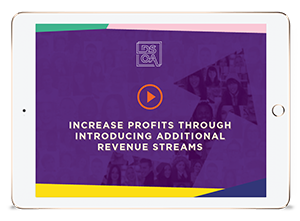
Increase Profits
Through Introducing Additional Revenue Stream
